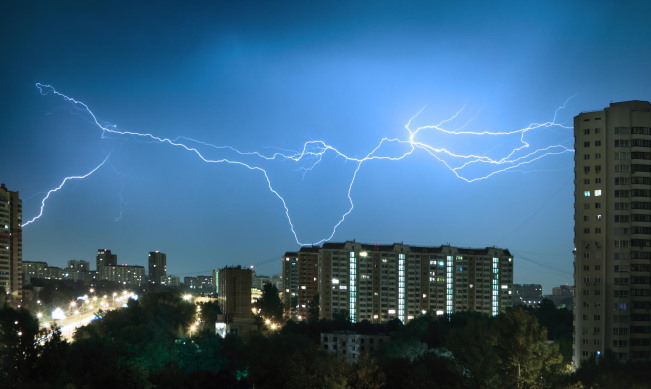
A power surge can damage your electrical appliances and even cause electrical fires over time. So, to help you keep your home safe from electrical damage, here's our guide to how power surges work and the steps you can take to prevent them from occurring.
What Is a Power Surge?
A power surge occurs when there's a temporary disruption in the flow of electricity through a device or the national power grid. While a power surge can be harmless, it could result in more serious damage to you, your family, or your property. Here's why.
-
* Sometimes, power surges can break your electrical devices.
-
* Using a damaged appliance can result in further power surges or physical injury.
-
* Power surges can, in serious cases, cause electrical fires or electrocution.
Causes of Power Surges
There's no single cause of power surges, but we can summarise the most common causes.
-
* Old, worn, or otherwise faulty electrical wiring
-
* Damage caused by animals, e.g., a mouse chewing through wiring
-
* Lightning strikes and power blackouts
-
* Storm damage, such as trees falling onto power lines
-
* Damaged circuit breakers – sure, tripped breakers might protect your home, but if they sustain damage, you could face problems down the line
-
* Too many electrical appliances running at one time, especially if they consume a lot of energy
Signs of Power Surges
Unfortunately, you often don't get much warning before a power surge. However, you should call an electrician and have your power checked as soon as possible if you notice any of the following red flags.
-
* Fuses around the home trip or blow frequently.
-
* Your wireless network drops frequently.
-
* There's a burning smell near a socket or device.
-
* You notice a drop in performance when you have a few electrical appliances running at one time. For example, maybe the TV cuts out when you turn on the cooker, or the lights flicker when you start the washing machine.
-
* Electrical devices stop working for no reason (when they're connected to a socket).
If you notice any of these issues, don't try to fix the problem on your own. You could injure yourself or damage your home.
Protection and Prevention
While you can't safeguard your home against every power surge, there are some steps you can take to reduce your risk.
-
* Always unplug electrical devices when you're not using them.
-
* Stop using a faulty appliance immediately and get it checked by an electrician.
-
* Buy the best quality electrical equipment you can afford.
-
* Don't run too many appliances at the same time.
-
* Update old electrical wiring.
-
* Ask an electrician to set up separate circuits for large appliances to reduce the risk of power overload.
Conclusion
For the most part, electricity is safe. However, power surges around the home can be unsettling, especially if they happen frequently. If you experience a power surge or you suspect there's something wrong with the electrics around your home or office, give a qualified electrician a call.
Remember, when it comes to electrical faults, it's always best to err on the side of caution!
| < Prev | Next > |
|---|





